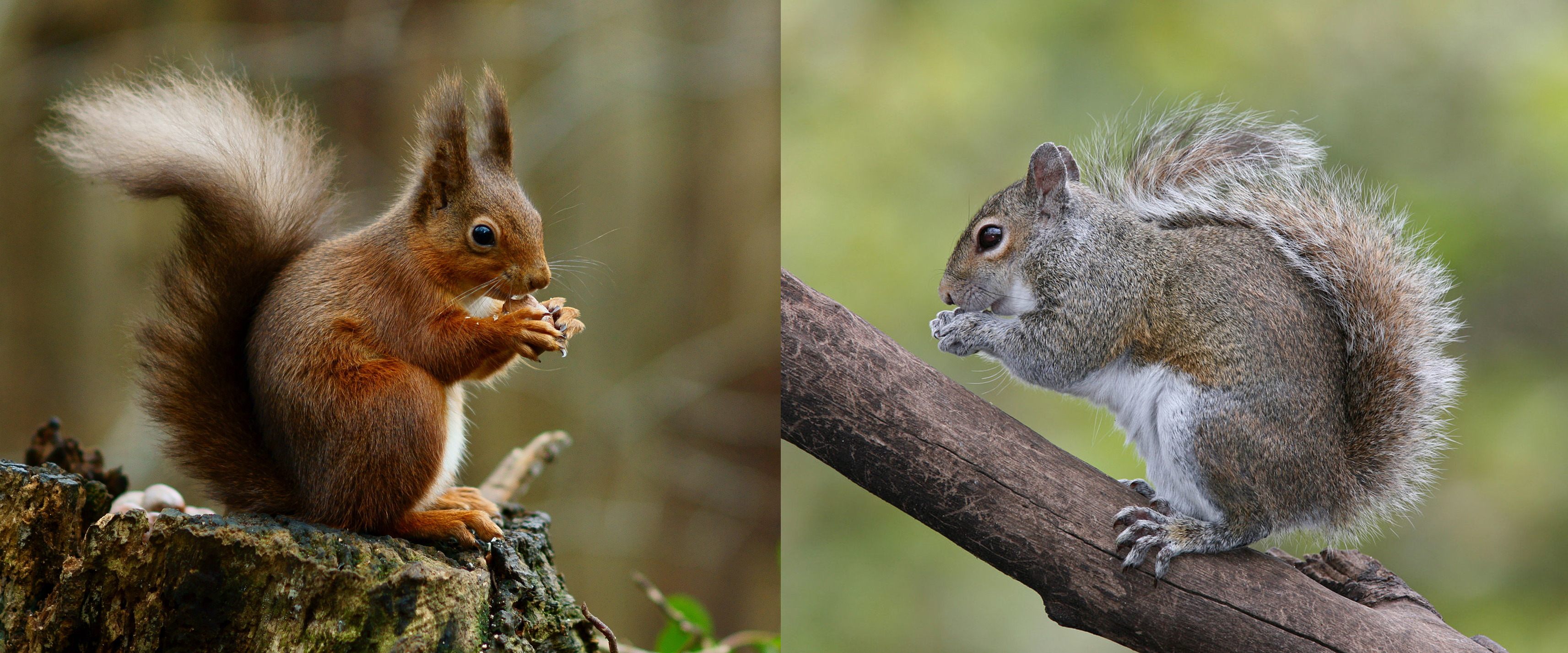The Average Gray Squirrel Is Surprisingly Good at Problem Solving
Sorry, red squirrels.

In the late 19th century, American squirrels flooded London parks. To Victorians, uninitiated to the perils of invasive species, these creatures were exotic, attractive, even cuddly. The native red squirrels, by comparison, seemed positively old hat. Wealthy landowners arranged to have the gray critters move into their own estates—the 11th Duke of Bedford, Herbrand Russell, liked them so much he gifted them to parks and properties across the country—and they gradually spread from the top to the bottom of the British Isles.
These animals, however fuzzy, have proven deeply deleterious to Britain’s native population of red squirrels. Gray squirrels carry squirrel pox, which kills red squirrels. They’re also bigger, hardier, and eat much more food. And a new study in the journal Animal Behavior suggests that gray squirrels have yet another string to their bow: They’re better at problem solving than red squirrels.
In a study by scientists from the universities of Exeter and Edinburgh, in the United Kingdom, squirrels were given two tasks, each with a hazelnut reward. In the “easier” one, squirrels had to remove a transparent lid; a “harder” task required a more complex process of pushing and pulling levers. Red and gray squirrels alike removed the lid with aplomb, but a staggering 91 percent of the gray ones were able to crack the harder task, compared to just 62 percent of the red ones.
Despite having lived in the U.K. for millennia, red squirrels are now outnumbered by their foreign cousins by more than 15 to one. Researchers from the study have suggested that gray squirrels’ cannier sensibilities may, in part, be to blame. “[Problem solving] might be especially important for an invasive species like gray squirrels, as they have evolved elsewhere and have to adapt to their surroundings,” Pizza Ka Yee Chow, of Exeter’s Centre for Research in Animal Behaviour, said in a statement. What’s still not clear, Chow said, was whether they really were better problem solvers, or whether having to adjust to a new environment had forced them to up their game.
Either way, the prognosis for Britain’s red squirrels is a little bleak—though there may be a silver lining. The red squirrels who were able to solve the trickier task, scientists said, did so quicker than the speediest gray squirrels. While gray squirrels may, on average, be better at these tasks, there’s a special crew of ultra-bright red squirrels who would likely feel very pleased with themselves—if they weren’t squirrels.















Follow us on Twitter to get the latest on the world's hidden wonders.
Like us on Facebook to get the latest on the world's hidden wonders.
Follow us on Twitter Like us on Facebook